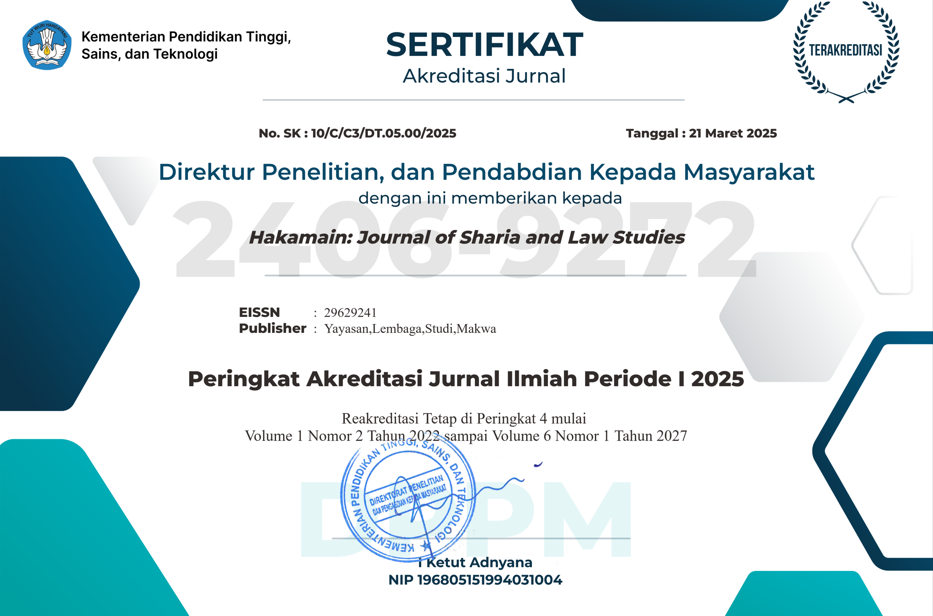Analysis of Overpayment Practices in Arisan with the Principles of Sharia Economic Law
DOI:
https://doi.org/10.57255/hakamain.v3i1.331Keywords:
Arisan, Law, Islamic Sharia and additional costsAbstract
This study delves into the practice of overpayment within Arisan, a traditional community-based financial system, through the framework of Sharia Economic Law. Arisan, known for its role in promoting savings and social solidarity, operates as a rotating savings and credit association where members contribute to a common fund that is periodically distributed among them. However, the issue of overpayment—where some participants pay more than others raises significant concerns regarding its compliance with Islamic financial principles. The research employs a qualitative approach to explore how overpayment practices in Arisan align with or contradict Sharia principles, particularly those prohibiting riba (usury), gharar (excessive uncertainty), and the requirement for fairness and justice in financial transactions. Through a comprehensive analysis of these principles, the study finds that overpayment in Arisan can lead to potential violations of Sharia law, especially when it results in financial inequities or the unjust enrichment of certain participants at the expense of others. The findings suggest that while Arisan can be a valuable tool for economic cooperation and community support, it must be carefully managed to ensure Sharia compliance. The study concludes by recommending specific adjustments to Arisan practices, such as the implementation of standardized payment structures and transparent agreements among participants, to safeguard against overpayment and ensure that the system operates within the ethical and legal boundaries of Sharia Economic Law. This ensures that Arisan continues to serve its purpose without compromising Islamic ethical standards.
Downloads
Published
How to Cite
Issue
Section
Citation Check
License
Copyright (c) 2024 Muhammad Edo Rahman, Taufik Ramadhan SY, Irvan Refliandi , Mhd Yusral Fuadi

This work is licensed under a Creative Commons Attribution-ShareAlike 4.0 International License.






